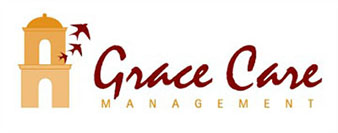My mother’s spirit and practice of caring has deeply influenced my own geriatric care management practice. Here are some of my reflections on her written a few years before she died.
Just lately, I’ve felt like I am standing in the darkroom of life, watching as the face of my mother develops, increasingly luminous in shadow. I realize it is not she that has changed. It is only the vantage point of the gathering years that has changed my perspective. The older I grow, the more amazing Helen Clark Massey becomes to me.
What has gripped me recently is her sheer ontology; her resolute thrust of “being” in spite of the mounting contradictions of aging. I don’t say death because she is not dying. She is 80 and in worsening health but she is too busy being alive to be complicit in deterioration.
She suffers from chronic obstructive pulmonary disease that renders her short of breath and wheezing on many occasions. She has become close friends with prednisone who is an acquaintance with a very dark side. This Rumplestilskin enables her to breathe better and fend off the pneumonia that regularly loiters around her bronchial tree but as its toll extracts a king’s ransom in calcium from her bones.
She had osteoporosis to begin with but as a result of her close alliance with prednisone, she’s now had several fractures of her increasingly porous infrastructure. They’ve caused her great pain, which she bears regally with the help of Vicodin. Fractures heal in time but it is also just a matter of more time before the scaffold gives in another direction.
To say this could be depressing is an understatement. It is bad enough to have difficulty breathing but to feel yourself crumbling as well must be devastating. Yet she holds her head high and comforts others. Her attitude is not denial of what some would consider her grim reality; rather she has become the embodiment of a phrase I remember her using through the years, “grace under pressure.”
Daily she performs what amounts to artful and disciplined pirouettes in the face of nothingness.
Here I must digress to indulge the philosopher within. It has been said that great art is performed on the edge of annihilation. Or as I learned from a Japanese woman in theater many San Francisco moons ago, the best clown is the one most in touch with their own tragedy.
The connection between art and humor is not so far a reach. Both are self‑transcendent. Is not weaving the gold of humor from the straw of life one of the greatest arts? It is an art we can pay others to do for us but ultimately we must learn to perform that alchemy for ourselves.
My mother has learned it well. She would deny she is brave, having to fight off the same pack of long‑legged fears again and again but she is without doubt the most courageous person I know. She defeats them poised in the protective circle of the present moment.
Her daughter is not yet nearly as steadfast. My sense of the tragic is too ingrained and predisposes me to depression. I would make a fine clown but not the tower of strength that Helen is by nature.
I’ve always called her my “iron lady,” but instead of Maggie Thatcher she seems more and more to me like Helen of Troy. Her face, now deeply lined and weathered, has launched more than a thousand ships. A good many of them are mine.
Years after her passing now, she remains my hero and a constant inspiration as I carry on her legacy of advocacy for elders. She didn’t know what she did was called “geriatric care management.” She just called it … “the right thing to do.”


